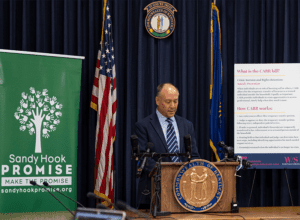Youth and teens are facing a mental health crisis of epidemic proportions. In February 2023, the CDC published its “Youth Risk Behavior Survey” revealing that behaviors, like anxiety, suicide, and self-harm, were continuing to trend in the wrong direction, as we move beyond the pandemic.
Teens girls and LGBTQ+ are especially experiencing shocking rates of violence, negative self-image, and suicidal behaviors, including bullying and sexual violence. Nearly 3 in 5 U.S. teen girls felt persistently sad or hopeless in 2021, double that of boys. That’s a 60% increase and the highest level reported in over 10 years.
Urgent action is long past necessary. The CDC confirmed our knowledge that positive school environments and programs that focus on inclusiveness and foster connection improve these outcomes.
Parents and caring adults who know how to spot the outer signs of an inner struggle can prevent mental health challenges from escalating.
Resources for Youth
- For immediate support, dial or text the Suicide & Crisis Lifeline at 988, multiple languages are available.
- Want to get support from a teen like you? Call 800-TLC-TEEN (852-8336) or text TEEN to 839863.
- How to Help a Friend and Take Charge of Your Mental Health from the National Alliance on Mental Illness (NAMI).
- Online resources for youth mental health, including how to talk to parents, support groups, a Q&A database, apps, and more from the Society for Adolescent Health and Medicine.
- Stress management resources to help manage anger, depression, and anxiety from Change to Chill.
- Help for struggling with eating disorders is available from the National Eating Disorders Association (NEDA), and the Alliance for Eating Disorders Awareness offers free virtual support groups and help finding specialized care.
Resources for Adults
- Talking to Kids When They Need Help from the American Psychological Association (APA). Find tips on starting a conversation and understanding what’s going on in the lives of children and teens.
- Parent Tips on Teens’ Mental Health from the American Academy of Pediatrics. Access tips on how to communicate with teenagers about their feelings and what signals to watch for.
- Five Action Steps for Helping Someone in Emotional Pain from the National Institute of Mental Health (NIMH). What to do when someone you care about is in danger of self-harm.
- National Helpline: 1-800-662-HELP (4357), a 24/7/365 referral and information service for individuals and family members facing mental health challenges or substance abuse.
- Spanish language safety and crisis resources are available from the National Association of School Psychologists (NASP).
We must stay vigilant to ensure the health and safety of our children, particularly during this difficult time. Learn the warning signs of emotional distress and advocate for suicide prevention training in all middle and high schools.


